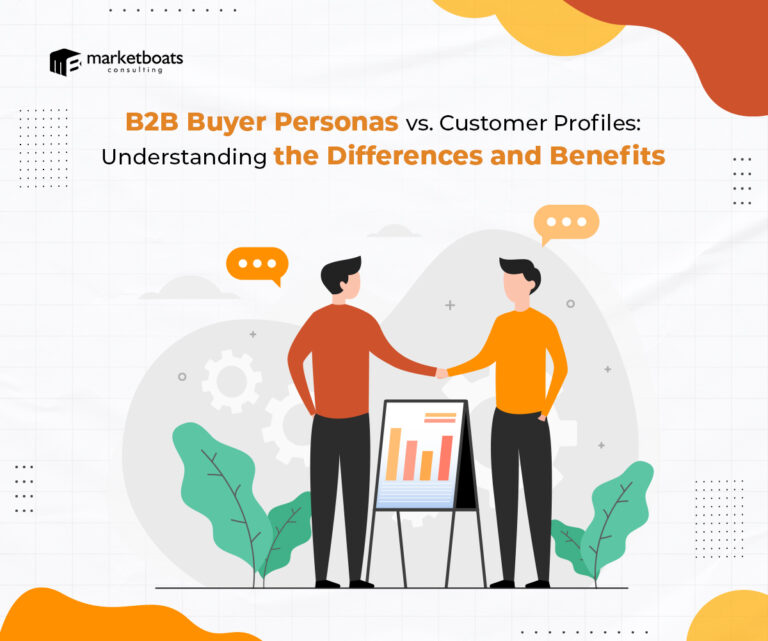Innovation with specialization – that’s micro-SaaS in a nutshell.
Micro-SaaS refers to small-scale Software as a Service (SaaS) businesses that offer specialized solutions to niche markets. As part of the broader SaaS ecosystem, small SaaS businesses have emerged in response to the increasing demand for tailored software solutions and the evolution of cloud computing technology.
Micro-SaaS ventures focus on niche customer pain points, employing agile development and cost-effective cloud infrastructure. The impact of the micro-SaaS industry can be gauged through the trend reflecting a shift towards more targeted and customizable software offerings, catering to the diverse requirements of businesses and individuals.
To give you a better insight into the micro-SaaS industry, this blog will take you through its ins and outs. Let’s start straight ahead!
The Allure of Micro-SaaS for Entrepreneurs
Out of so many business ventures, micro-SaaS has good offerings for entrepreneurs that make it an attractive venture. Here are the most attractive benefits of micro-SaaS:
Low barrier to entry
While you need to invest a good amount in traditional software involving higher risks, micro-SaaS ventures provide you with a much better cushion to fall on- requiring significantly lower upfront investment and resources.
With cloud-based infrastructure, readily available development tools, and various platforms for distribution (such as app stores and online marketplaces), entrepreneurs can build and launch their SaaS products relatively quickly and inexpensively. This lowers the barrier to entry, making it accessible to a broader range of individuals with varying levels of technical expertise and financial resources.
Advantages of being-niche specific
Micro-SaaS businesses provide specialized solutions, targeting niche markets with very specific needs. Instead of trying to appeal to a broad audience, entrepreneurs with micro-SaaS businesses can micro-focus on serving a specific segment of users exceptionally well.
This targeted approach allows for a deeper understanding of customer requirements, more tailored solutions, and often less competition. By concentrating efforts on a narrow market, entrepreneurs can build products that resonate strongly with their target audience, leading to higher customer satisfaction and loyalty.
Agile development and adaptation
Micro-SaaS lends itself well to agile development methodologies, enabling entrepreneurs to quickly iterate on their products based on user feedback and market demands. With smaller teams and simpler product architectures, changes can be implemented swiftly, allowing for rapid adaptation to evolving customer needs and competitive landscapes.
Challenges Faced by Micro-SaaS Companies
Micro-SaaS businesses come with great perks but also have some downsides. So, what are the hurdles keeping you off the micro-SaaS opportunities?
The challenge of scaling your business
To grow a micro-SaaS business, you need to make it bigger and better, but do it smartly. This means doing more with less money, a small team, and limited tools. Focus on using tech and methods that can grow with you, and be smart about where to spend time and money to ensure you keep your customers happy and your business profitable.
Competing with larger players
Micro-SaaS businesses, being much smaller, often compete with larger companies that have more products, more customers, and bigger budgets for advertising. This makes it tough for these small businesses to stand out and win over customers. However, by finding what makes them unique, focusing on specific markets or features, and being quick to innovate, micro-SaaS companies can outpace their bigger rivals.
Customer acquisition and retention
Introductions and first-time conversations can often be difficult. While established companies already have their name in the game, newer players have to announce their presence well to win over the customers- and it’s not an easy thing to do. Additionally, customer acquisition can be challenging due to limited marketing budgets, competition, and reaching target audiences effectively.
Micro-SaaS companies need to develop targeted marketing strategies, identify the most cost-effective customer acquisition channels, and optimize their sales and marketing processes to attract and convert prospects into paying customers.
To retain customers, keep in mind the ‘ABCD’ approach:
- Adding value: Micro-SaaS companies must focus on continuously adding value to their products or services to meet the evolving needs of their customers and stay competitive in the market.
- Building relationships: Providing excellent customer support helps in building strong relationships with customers, fostering loyalty, and increasing retention rates.
- Continuous improvement: Micro-SaaS companies should prioritize continuous improvement of their products or services based on customer feedback and market trends to maintain relevance and drive growth.
- Direct feedback loop: Establishing a direct feedback loop with customers is essential for gathering insights, understanding pain points, and identifying opportunities for enhancement.
Furthermore, building strong relationships with customers, offering incentives for loyalty, and implementing effective retention strategies can help micro-SaaS companies reduce churn and maximize customer lifetime value.
The Customer Perspective: How Micro-SaaS Appeals to SMEs
While we have listed the challenges and potential solutions, we must introduce you to the best segment of potential customers as well- Small and Medium Enterprises (SMEs).
SMEs are generally on the same boat as you; they need good solutions at reasonable pricing, which the big players cannot provide – here’s where you come in with just the offering they cannot refuse.
Let’s get a better understanding of the customer perspective of SMEs so you can target your audience with better micro-SaaS strategies:
Tailored solutions for specific problems
Micro-SaaS offerings often provide tailored solutions that address specific pain points or requirements of SMEs. Unlike one-size-fits-all solutions from larger providers, micro-SaaS products are designed to cater to niche markets or specialized functionalities, ensuring that SMEs get precisely what they need without unnecessary features or complexities.
Cost-effectiveness
Micro-SaaS solutions are typically more cost-effective for SMEs compared to traditional software offerings or custom-built solutions. With lower upfront costs, flexible pricing models (such as pay-as-you-go or subscription-based), and the absence of long-term contracts or hefty licensing fees, micro-SaaS enables SMEs to access high-quality software at affordable rates, aligning with their budget constraints and resource limitations.
Enhanced customer support and personalization
Micro-SaaS companies often prioritize customer support and personalization, offering SMEs a level of attention and responsiveness that may be lacking from larger providers. With smaller customer bases and dedicated support teams, micro-SaaS companies can offer more personalized assistance, faster response times, and tailored solutions to meet the specific needs of SMEs. This enhanced level of support fosters stronger relationships, builds trust, and enhances the overall customer experience for SMEs.
Technological Enablers for Micro-SaaS Growth
Technological enablers play a crucial role in facilitating the growth of small SaaS businesses. Here are three key technological factors driving the expansion of micro-SaaS:
Cloud computing advancements
Cloud computing has revolutionized the way software is developed, deployed, and accessed. For micro-SaaS companies, cloud computing offers scalable and cost-effective infrastructure solutions, eliminating the need for significant upfront investments in hardware and data centers.
Cloud platforms provide micro-SaaS businesses with the flexibility to scale their operations seamlessly, accommodate growing customer bases, and handle fluctuating workloads. Additionally, cloud-based services enable easy deployment and updates, ensuring that micro-SaaS products remain accessible and up-to-date for users.
API economies and integration possibilities
Application Programming Interfaces (APIs) have become integral components of the micro-SaaS ecosystem, facilitating seamless integration with other software applications and services. APIs enable micro-SaaS companies to leverage third-party functionalities, data sources, and services to enhance the capabilities of their products.
By integrating with popular platforms and services, micro-SaaS businesses can offer added value to their customers, improve user experience, and expand their market reach. API economies foster collaboration and innovation within the micro-SaaS community, enabling companies to build and deliver more comprehensive solutions to their customers.
Low-cost marketing channels and the role of social media
Micro-SaaS companies benefit from the availability of low-cost marketing channels, particularly through social media platforms. Social media provides micro-SaaS businesses with a cost-effective means of reaching and engaging their target audience, building brand awareness, and generating leads.
With targeted advertising, content marketing, and community engagement strategies, micro-SaaS companies can effectively promote their products to potential customers without the need for large marketing budgets. Social media platforms also facilitate direct communication with customers, enabling micro-SaaS businesses to gather feedback, address concerns, and foster customer relationships in real-time.
Examples of Successful Micro SaaS Companies
Inspiration is important because when you see others who started much like you and made it big, it’ll inevitably fuel your dreams. So, let’s introduce you to some micro-SaaS examples:
- Mailchimp: Mailchimp provides email marketing and automation services tailored for small businesses, offering easy-to-use tools for designing, sending, and analyzing email campaigns.
- Calendly: Calendly offers scheduling software that simplifies the process of booking appointments and meetings, allowing users to share their availability and schedule events effortlessly.
- Canva: Canva is a graphic design platform that enables users to create professional-quality designs for various purposes, including presentations, social media graphics, posters, and more, using intuitive drag-and-drop tools.
- Trello: Trello is a collaboration tool that organizes projects into boards, lists, and cards, allowing teams to manage tasks, track progress, and collaborate in real-time.
- Storemapper: Storemapper provides store locator software for e-commerce websites, allowing businesses to display their physical store locations on interactive maps to help customers find nearby stores.
- Plausible: Plausible offers simple, privacy-friendly website analytics software that provides insights into website traffic and visitor behavior without compromising user privacy.
- SocialBee: SocialBee is a social media management tool that helps users schedule, automate, and analyze their social media posts across various platforms, saving time and improving engagement.
Future Outlook: Micro-SaaS Trends Shaping the Industry
The SaaS industry is soaring and flying and is estimated to be worth US$232 billion by 2024. With the widespread adoption of cloud-based technologies and an equally promising SME industry, the micro-SaaS business is predicted to only climb upwards.
With innovation and strategy, any aspiring micro-SaaS start-up can prove to be a worthy competition for the biggest names. Along with unmatched offerings, what’s important is to reach the audience first, which needs a strong marketing strategy – and who better to assist you than Marketboats!
Our team of growth experts with 25 years of collective experience is ready to engage with you, offering industry insights and tailored recommendations on the most effective strategies to propel growth for your business.





